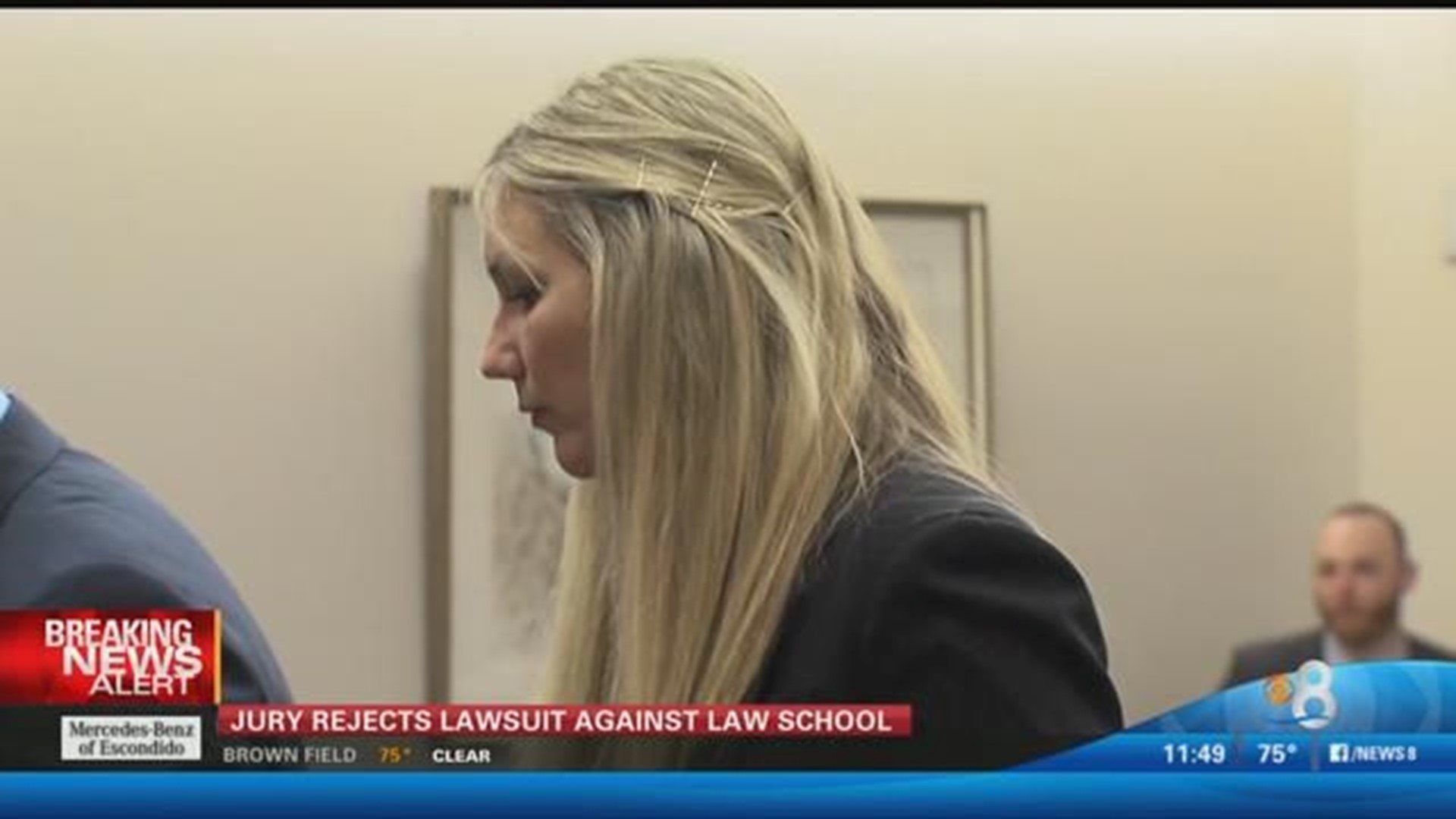SAN DIEGO (CNS) - The Thomas Jefferson School of Law didn't falsely represent its post-graduate statistics in a national magazine as a way to lure students to the San Diego law school, a jury decided Thursday.
Anna Alaburda, a 2008 TJSL graduate, claimed that she spent more than $100,000 for her degree but was unable to find a full-time job as an attorney because she relied on false employment figures provided by the school and published in U.S. News & World Report.
Alaburda filed her lawsuit in 2011, seeking $125,000 in damages on claims of false advertising and misrepresentations by TJSL and an order preventing it from misleading students. Jurors awarded her nothing.
Michael Sullivan, the attorney for the law school, said the jury verdict showed that TJSL does its best to provide accurate information on its graduates and is not a ``fourth-tier'' law school.
"When the jury heard about the excellent faculty and the awards that its students have won -- more than Ivy League schools -- very prestigious writing awards, all of its faculty being top-drawer, the passion that its faculty has for its students, I think that helped them understand that this is not a Trump University,'' Sullivan said after the verdict.
Sullivan told the jury that Alaburda, 37, did not suffer any damages and that she went to TJSL because it was the only law school where she got accepted.
Once there, the plaintiff was awarded a $20,000 scholarship to help with tuition, making her total debt $32,000 after three years, Sullivan said. Alaburda decided not to work during her first two years of law school and within two months of graduating, had two job offers in the legal field, the attorney said.
Sullivan said the process of gathering employment data for graduates is "difficult'' and a "challenge'' for the school, but said there was "not a pattern of mistakes'' by TJSL.
Alaburda's attorney, Brian Procel, alleged that the Thomas Jefferson School of Law had a practice of presenting false employment figures for its
graduates.
"She (Alaburda) would not have gone there if she'd known the truth,'' Procel told the jury.
Upon graduating from New York University, Alaburda took a job in Los Angeles before researching law schools, Procel said. Alaburda enrolled in TJSL
in 2005 after reviewing employment data regarding its graduates and their ability to land jobs, her attorney said.
Even though she graduated with honors in 2008, Alaburda wasn't able to find a job with a law firm despite sending out 150 resumes, Procel said.
Eventually, Alaburda got a $60,000 job offer from a San Bernardino law firm and took a $70,000-a-year job with a legal publisher, her attorney said.
Procel said Alaburda never considered filing a lawsuit until 2011, when she read a New York Times article on TJSL employment figures.
"She relied on those employment figures,'' Procel told the jury. ``She went there under false pretenses.''
In the past several years, at least 15 lawsuits have sought to hold various law schools accountable for publicly listing information that critics say was used to inflate alumni job numbers, but only one other lawsuit remains active, according to published reports.
Judges in other states have ruled that law students opted for law school at their own peril, and should have known that employment as an attorney was not guaranteed.

